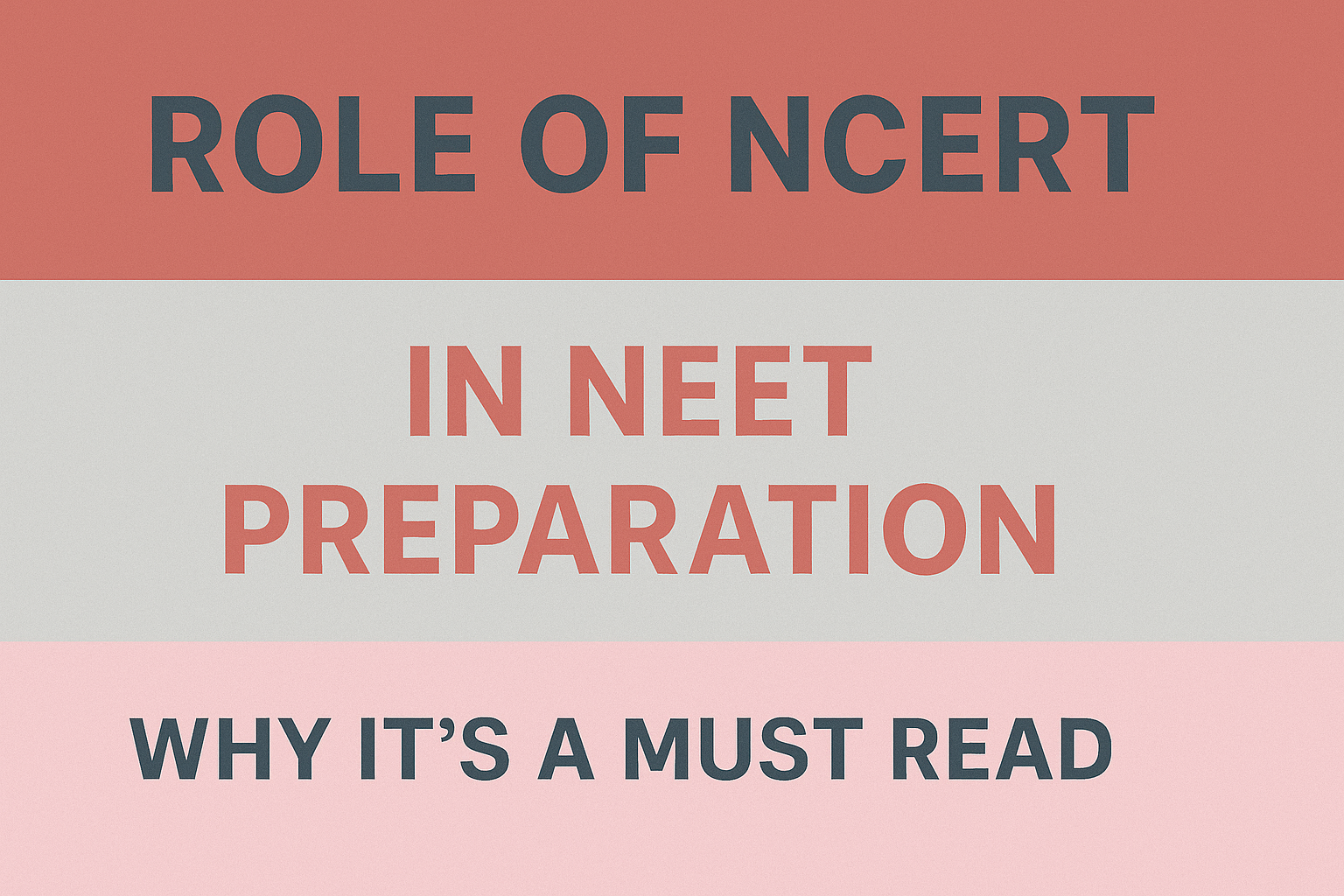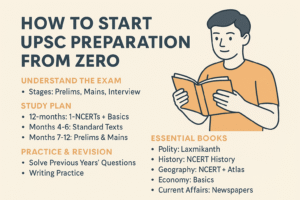Introduction
When it comes to NEET (National Eligibility cum Entrance Test) preparation, one name that consistently stands out is NCERT. From toppers to coaching experts, everyone swears by the effectiveness of NCERT books. But why is NCERT such a crucial component of NEET preparation? How can you utilize it effectively to maximize your score?
This article dives deep into the role of NCERT in NEET preparation, highlighting why it is a must-read for every serious NEET aspirant. If you aim to score 650 or more in NEET, this guide is for you.
Why NCERT is the Backbone of NEET Preparation
1. Syllabus Overlap with NEET
NCERT textbooks for Class 11 and 12 (Biology, Chemistry, and Physics) are directly aligned with the NEET syllabus as prescribed by NTA. Over 80 to 85 percent of the NEET questions are based on NCERT concepts, definitions, and diagrams.
Pro Tip: Stick to NCERT as your base and build other references only if needed.
2. Conceptual Clarity in Biology
Biology contributes 50 percent of the NEET paper, and NCERT Biology is unparalleled when it comes to clarity, accuracy, and exam relevance. Every single line can be a question.
Fact: Many direct questions in NEET Biology are picked verbatim from NCERT.
3. Foundation for Chemistry
Inorganic Chemistry: Almost all questions are based on NCERT.
Organic Chemistry: Mechanisms can be supplemented from other sources, but reactions and examples in NCERT are frequently asked.
Physical Chemistry: NCERT provides theory and solved problems that match NEET level.
Recommendation: Revise NCERT Chemistry multiple times and memorize examples, tables, and reactions.
4. Supportive for Physics Theory
While NEET Physics often requires practice from advanced books, NCERT is essential for theory and fundamental concepts.
Tip: Use NCERT Physics as a theory guide, then solve MCQs from other practice books like HC Verma or DC Pandey.
5. Tables, Flowcharts, and Diagrams
NCERT books include a large number of diagrams, tables, and flowcharts that are frequently asked in NEET.
NCERT Biology diagrams, in particular, are important for visual memory and quick recall.
6. Toppers’ First Choice
NEET toppers consistently rank NCERT as their primary and most important study material.
Example: Toppers who scored above 700 often revise NCERT Biology at least 8 to 10 times before the exam.
7. Easily Available and Cost-Effective
NCERT books are affordable, widely available, and recognized by all schools and coaching centers. They are often provided free in CBSE-affiliated schools.
8. Frequently Asked Lines
Specific lines from NCERT are sometimes lifted exactly for NEET MCQs. Memorizing NCERT lines, especially in Biology, is a scoring strategy.
How to Use NCERT Effectively for NEET
Read line-by-line with a highlighter
Make short notes, especially for Biology and Chemistry
Practice questions from NCERT Exemplar and past NEET papers
Revise diagrams and tables regularly
Mark important lines for last-minute revision
NCERT Weightage in NEET (Subject-Wise)
| Subject | Approximate NCERT Coverage in NEET |
|---|---|
| Biology | 90 to 95 percent |
| Chemistry | 85 to 90 percent |
| Physics | 60 to 70 percent |
Common Mistakes to Avoid
Ignoring NCERT in favor of only reference books
Skipping NCERT examples and illustrations
Not revising NCERT multiple times
Assuming NCERT is too basic for NEET
Conclusion
If you’re preparing for NEET, NCERT is not optional—it is essential. From covering the syllabus accurately to offering a goldmine of directly-asked questions, NCERT is your strongest weapon. Master NCERT first before diving into any other reference book.
Those who conquer NCERT, conquer NEET.
FAQs on Role of NCERT in NEET Preparation
Q1. Can I crack NEET just by reading NCERT
Yes, especially for Biology and Inorganic Chemistry. For Physics and Physical Chemistry, you’ll need additional problem-solving practice.
Q2. How many times should I revise NCERT before NEET
Aim to revise NCERT Biology at least 8 to 10 times, Chemistry 6 to 8 times, and Physics theory 4 to 5 times.
Q3. Is NCERT enough for Physics in NEET
For conceptual theory, yes. But for numerical practice, supplement it with books like HC Verma or your coaching material.
Q4. Should I read NCERT Exemplar too
Yes. Especially for Chemistry and Physics, NCERT Exemplar has higher-level MCQs that reflect NEET standards.
Q5. What is the best way to study NCERT Biology
Read every line carefully, highlight and annotate, make mind maps and flowcharts, and practice MCQs based on NCERT lines.







